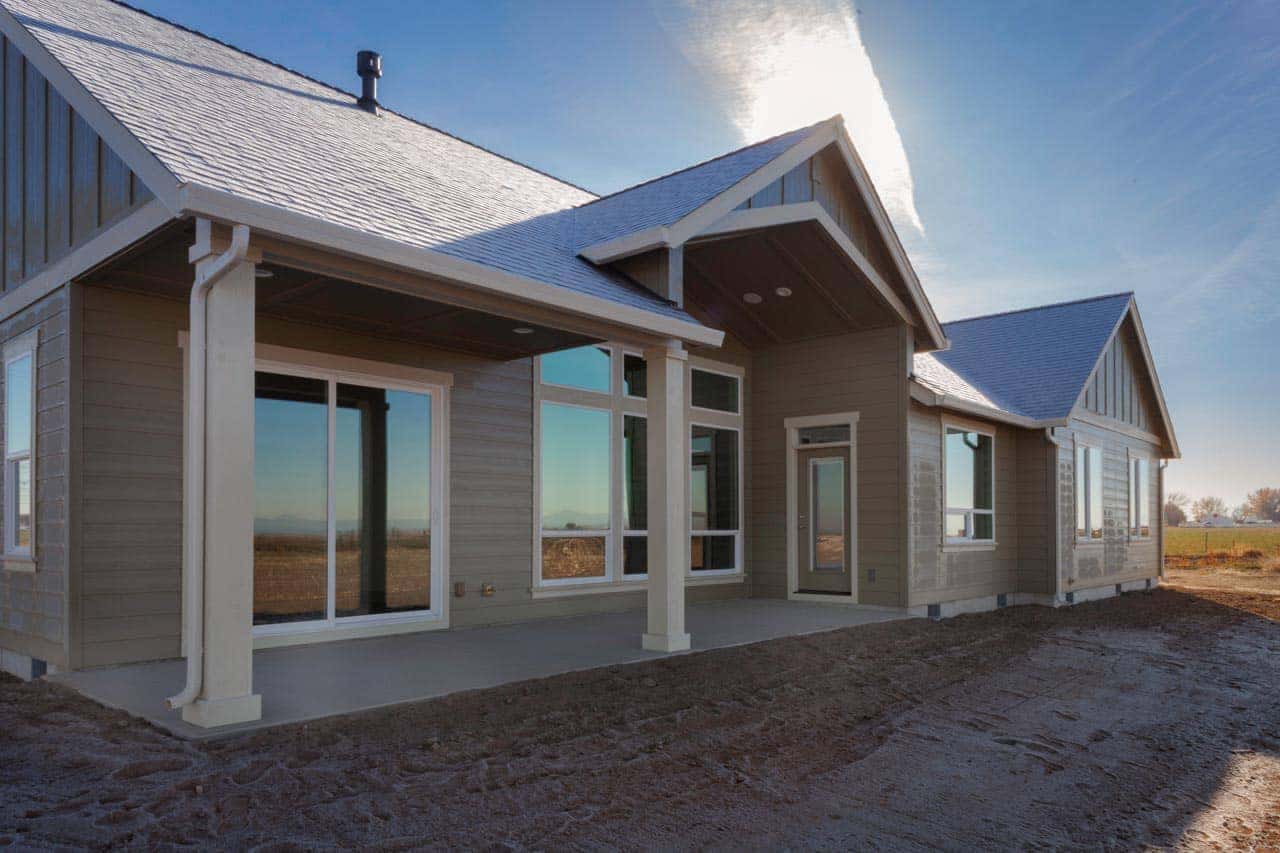
First published in Cascade Business News | May 17

Understanding the financing process can save time, money, and frustration, whether you are just starting the home building process and searching for land, or you already have land and are ready to move forward. Here are a few tips to help you prepare for the financial aspect of building a home on your own land. During our meeting with Jackie Westover, a mortgage loan officer at Umpqua Bank, we gained insight into bank requirements that influence loan eligibility and timing.
Land Loan Options in Oregon
What is a Bare Land Loan?
A land loan is available to those who are interested in buying a plot of land and then building a home on it. A land loan may be harder to come by than a mortgage, so you may have to do some shopping around. The best choice for your situation will also depend on the type of land loan you take out.
Additionally, to compensate for the perceived risk of lending on bare land, a lender will require a significant down payment, limit the loan period and charge a higher interest rate.
What is a Home and Land Package?
Typically, house and land packages are offered by property developers that are creating new housing estates to cater to the needs of their customers.
The purchase of a house and land package may be the best option for first-time homebuyers or those who are looking to invest in their dream home without spending a fortune. With it, customers are able to obtain houses and land at a fixed price.
Home and land packages fall into two categories. First, there is the turnkey purchase. With this option, you’ll choose a property and choose a home design. Once you pay the 10% deposit, you’ll negotiate the pricing with the developer and agree on how and when the project is to be built. Upon completion, they’ll turn over the house to you.
With the second option, you can buy real estate. Following the purchase of the property, you are free to decide how everything will be arranged. Additionally, you will need to decide on the project schedule with your contractor, who you will be paying as the job moves forward.
Comparing Bare Land Loans and Home and Land Packages
While getting a land loan is similar to getting a traditional mortgage, land loans differ from home loans in many ways. A major difference is in the length of the repayment term and the interest rate.
Key differences:
- Land loans usually have shorter terms than home mortgages. Mortgages can be obtained for 15 or 30 years. Land loans can last as long as 15 or 20 years or as short as a few years.
- The down payment may have to be higher at closing for a land loan. Down payments of 20% are common, but they could be higher. Getting a lower down payment may result in a higher interest rate. Lenders sometimes determine the amount of the down payment based on loan-to-value (LTV).
- Land loans often have higher interest rates than home mortgages.
Pros and Cons of Land Loans
There are both advantages and disadvantages to applying for a land loan. Here are some of the pros and cons to help you make your decision. See how they relate to your financial situation and personal needs.
Pros: Applying for a land loan can be beneficial if you plan to build a home or business. The greatest advantage is being able to create the home of your dreams. A land loan is a great option if you’re creative, patient, and have a vision for your home.
Cons: A land loan application should be understood in its realities and drawbacks. When there is no house to use as collateral, a land loan can be riskier for lenders, which makes many lenders less willing to make loans. Financing may also require a larger down payment and higher interest rates. Since the project is a new construction, unforeseen complications may arise, such as the house not being completed on time. It may be more convenient and easier to get a traditional mortgage for some buyers.
Other Land Purchasing Options
Consider these other options if you’re in the market for land but aren’t looking forward to taking out a land loan.
Seller Financing
Borrowers can also consider seller financing. A seller-financed land agreement is sometimes referred to as a land contract. As opposed to a financial institution or lender, a seller acts as a lender in these real estate agreements. Contracts are signed between buyers and sellers instead of traditional mortgages.
Because sellers are often more flexible than financial institutions, sellers-financed loans might be easier to qualify for than traditional loans. Seller financing can be beneficial to buyers with low credit scores or no down payments, but there are also disadvantages.
While you will receive equitable title, the seller retains legal title to the property until you pay it off, which can cause complications. There is also the possibility that your seller will charge you higher interest rates and your contract may have vague terms.
Home Equity Loan
For some borrowers, home equity loans may be a better option than land loans. Essentially, they are second mortgages, allowing you to utilize some of your existing home’s equity. Since your home secures the loan, they usually allow you to lock in a lower interest rate regardless of what you plan to do with the land. Due to the fact that you are not using the loan to buy, build or improve the house, the interest paid is not tax-deductible.
According to the lender, loan repayment terms can range from 5 to 30 years. Defaulting on the loan, however, could result in you losing your home.

How to Apply for a Land Loan in Oregon
The process of applying for a land loan in Oregon is similar to that of applying for a mortgage or other loan. Since appraisals are sometimes problematic with these loans, lenders are exposed to more risk. Building on the lot eventually can make the lot loan more appealing and make the approval process easier.
Oregon land loans allow you to finance the purchase of land. Several lenders allow you to finance large lots with no acreage restrictions. Building on a land loan is flexible and can be done whenever you want.
Is a Bare Land Loan Right for Me?
How do you know if a land loan in Oregon is right for you? In making your decision, you should consider your current living situation or your long-term goals. Consider the following:
- Are you planning to move soon?
- Do you like the idea of living in a certain neighborhood, but your budget cannot cover the cost of the built homes?
- If you finance, are you willing to pay a higher interest rate?
New Era Homes is Oregon’s premier semi-custom home builder. We offer a wide range of floor plans and finishes to choose from, so you can create the home of your dreams. If you’re looking for a quality, semi-custom home, contact us today!
